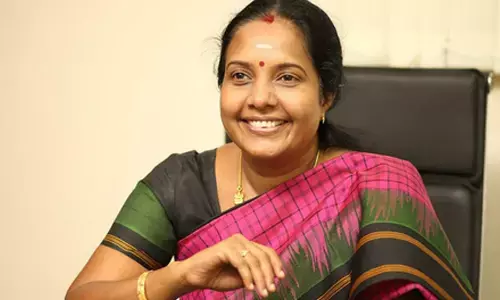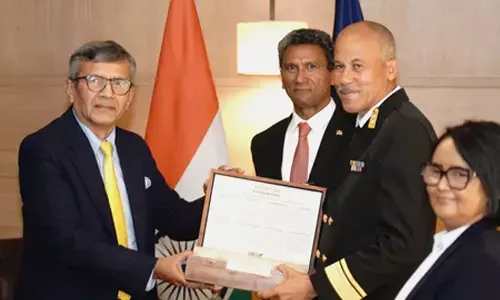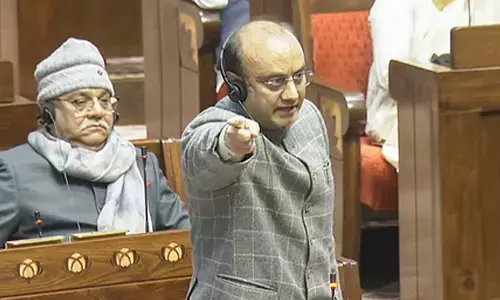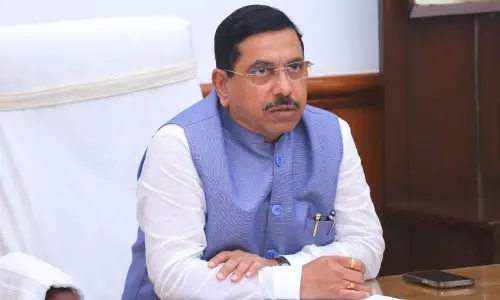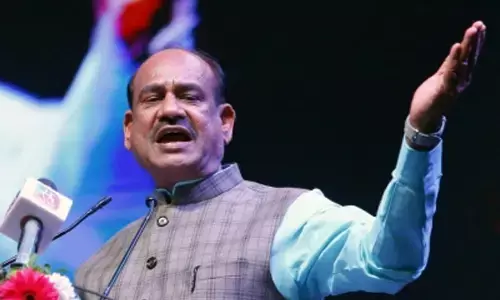Judges Bills passed

Judges Bills passed, Parliament is going through the burial rights of the collegium system of appointing judges of high courts and the supreme court. The Lok Sabha passed the two legislations -- a Bill to create a National Judicial Appointments Commission (NJAC), and another Constitutional Amendment to provide a constitutional status to this commission.
- LS scraps collegium system, RS to do it today
New Delhi: Parliament is going through the burial rights of the collegium system of appointing judges of high courts and the supreme court. The Lok Sabha passed the two legislations -- a Bill to create a National Judicial Appointments Commission (NJAC), and another Constitutional Amendment to provide a constitutional status to this commission. The passage of this legislation would be a landmark event in so far as its impact on the functioning of the judiciary is concerned as it restores the role of the executive in the appointment of judges. In the Lok Sabha voting for the constitutional amendment got overwhelming support as no one opposed it. The Bill for the NJAC was okayed by a voice vote.
.jpg)
Before the Bills were taken up for voting, Law Minister Ravi Shankar Prasad said the proposed law did not impact upon the independence of the judiciary but would provide wider consultations for appointment of judges to the Supreme Court and high courts. "We are for maintaining the sanctity of the judiciary ... We have said this House respects independence of the judiciary. That should be assuring," he said.
After the passage by the Lok Sabha, the Bills were taken up in the Rajya Sabha and the debate remained unfinished till 9 pm when theHouse was adjourned for the day. But then all the parties came to an understanding that Friday being the last day of the session the Bills would be voted upon before noon.
With the Bills having the crossed the first step in the Lok Sabha, it is now certain that the collegium system of appointing judges without any reference to the executive would come to an end. During the course of the debate in Parliament, members cutting across party lines, specially those who are lawyers by profession, were heard with rapt attention as they dwelt on the flaws of the collegium system.
In the Rajya Sabha at one stage when former attorney general K Parasaran was speaking on the subject, deputy chairperson P J Kurien wondered as to whether such criticism of the judges should be allowed to go on record. The senior lawyer responded that he was only quoting the words spoken by a former judge at a public event. “ The speech is in the public domain,” he said.
The Bills propose that the Chief Justice of India will head six-member National Judicial Appointments Commission, other members of which would be the law minister, two senior Supreme Court judges and two eminent people.
A collegium comprising the prime minister, the chief justice of India and the leader of the single largest party in the Lok Sabha will select the two eminent people. One eminent person will be nominated from among the Scheduled Castes, Scheduled Tribes, OBCs, minorities or women.
The Bill states that the commission will seek the views of the governor and chief minister of the state concerned in writing before appointing or transferring a judge of that high court. One of the provisions of the Bill that if two members of the commission do not agree on a candidate, he or she will not be appointed was opposed by quite a few members who claimed that this will lead to a veto system.
Law Minister Ravi Shankar Prasad, however, allayed their fears saying: "Two is a voice to be considered in case of dissent." "The process of consultation has been made more meaningful. A large section of people do not have representation in the judiciary as of now," he said, adding that there should be a database of lawyers from reserved categories. "The need for a new law is not the thinking of only our government. It is a collective exercise which has been in the offing for the last 20 years," he said.
Congress leader Mallikarjun Kharge had asked the government to make a provision to make representation of scheduled castes and scheduled tribes mandatory in the Judicial Commission.



